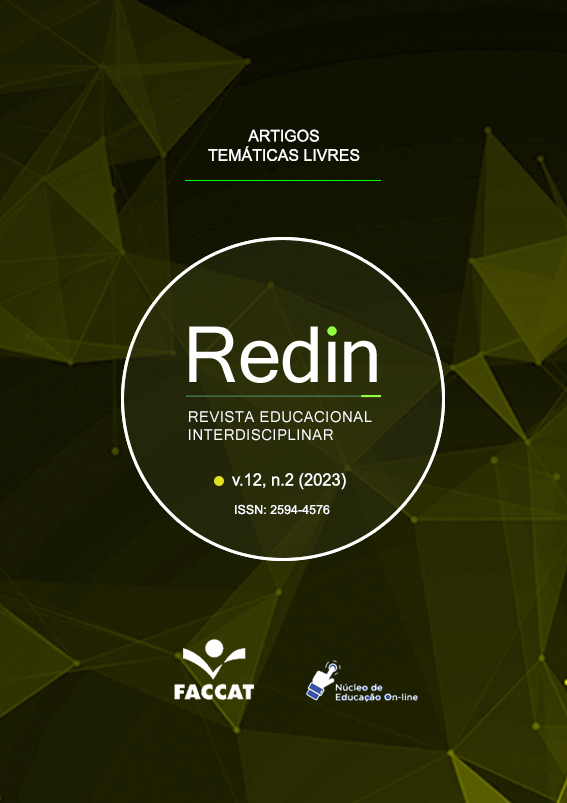Aprendendo algoritmos de inteligência artificial no metaverso
Resumo
Instituições de diversos países estão propondo incluir a Inteligência Artificial nos currículos em todos os níveis de ensino. No entanto, poucos resultados de suas aplicações práticas são encontrados na literatura. O objetivo deste artigo é apresentar os resultados do desenvolvimento e teste de um objeto de aprendizagem para o ensino do conceito de algoritmos para alunos do ensino fundamental. Para tal, foi desenvolvido um objeto de aprendizagem em metaverso para ensino de algoritmo. Cinquenta e dois alunos do ensino fundamental foram organizados em grupos de controle e experimental. Com base em análises comparativas dos resultados, utilizando o ganho normalizado na aprendizagem de Richard Hake, pode-se inferir que o grupo experimental teve melhoria significativa no seu aprendizado sobre algoritmos em relação ao grupo de controle.
Palavras-chaves: Computação; Inteligência Artificial; Metaverso; Ensino Fundamental; Algoritmos.
Referências
BAILEY, F.; MOAR, M. The Vertex Project: Children creating and populating 3D virtual worlds. Journal of Art & Design Education, v. 20, n. 1, p. 19-30, 2001.
BRACKMANN, C. P. Desenvolvimento do pensamento computacional através de atividades desplugadas na educação básica. 226 f. Tese (Doutorado em Informática na Educação) - Universidade Federal do Rio Grande do Sul. Porto Alegre, 2017.
ELFAKKI, A.; SGHAIER, S.; ALOTAIBI, A. An Efficient System Based on Experimental Laboratory in 3D Virtual Environment for Students with Learning Disabilities. Electronics, v. 12, n. 4, p. 989, 2023.
HAKE, R. R. Interactive-engagement versus traditional methods: A six-thousand-student survey of mechanics test data for introductory physics courses. American journal of Physics, v. 66, n. 1, p. 64-74, 1998.
HOLMES, W.; BIALIK, M.; FADEL, C. Artificial Intelligence in Education: promises and Implications for Teaching and Learning. The Center for Curriculum Redesign, Boston, MA. 2019.
HOLMES, W; PERSSON, J; CHOUNTA, I; WASSON, B; DIMITROVA, V. Artificial intelligence and education: a critical view through the lens of human rights, democracy and the rule of law. Council of Europe, 2022.
LIN, H.; WAN, S.; GAN. W.; CHEN, J.; CHAO, H,C. Metaverse in education: Vision, opportunities, and challenges. arXiv:2211.14951, p.1-10, 2022. DOI: https://arxiv.org/abs/2211.14951
MCCARTHY, J. Review of The Question of Artificial Intelligence. Annals of the History of Computing, v.10, n.3, p.224-229, 1998.
MIAO, F. K-12 AI curricula: a mapping of government-endorsed AI curricula, UNESCO Publishing. (Online). 2022. Disponível em: https://unesdoc.unesco.org/ark:/48223/pf0000380602/ Acesso em: 17 mar., 2023.
MIAO, F.; HOLMES, W.; HUANG, R.; ZHANG, H. AI and education: a guidance for policymakers. UNESCO Publishing. (Online). 2021. Disponível em: https://unesdoc.unesco.org/ark:/48223/pf0000376709/ Acesso em: 17 mar.; 2023.
OH, J.; HESSEL, M.; CZARNECKI, W.; XU, Z.; HASSELT, H.V.; SINGH, S.; SILVER, D. Discovering reinforcement learning algorithms. In: Proceedings in AI Advances in Neural Information Processing Systems, v. 33, NeurIPS, 2020.
PARSON, E; RE, R.; SOLOW-NIEDERMAN, A.; ZEIDE, E. Artificial intelligence in strategic context: an introduction. UCLA: The Program on Understanding Law, Science, and Evidence (PULSE). Disponível em: https://escholarship.org/uc/item/9c8651s6/ Acesso em: 17 mar.; 2023.
RUSSELL, S.; NORVIG, P. Artificial Intelligence: a modern approach. Hoboken: Pearson, 2020.
TAROUCO, L. M. et al. Aprendizagem e avaliação em um ambiente de Realidade Virtual Cooperativo de Aprendizagem (Projeto ARCA). Revista Brasileira de informática na Educação, v. 6, 2000.
VICARI, R. Referencial curricular inteligência artificial para o Ensino Médio: Inteligência Artificial no Ensino Médio. (Online). 2022. Disponível em: https://www.inf.ufrgs.br/ciars/
WING, J. M. Computational thinking benefits society. In: 40th anniversary blog of social issues in computing, v. 2, p. 26, 2013.


